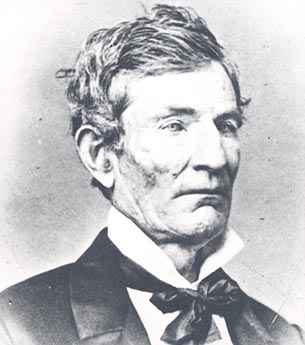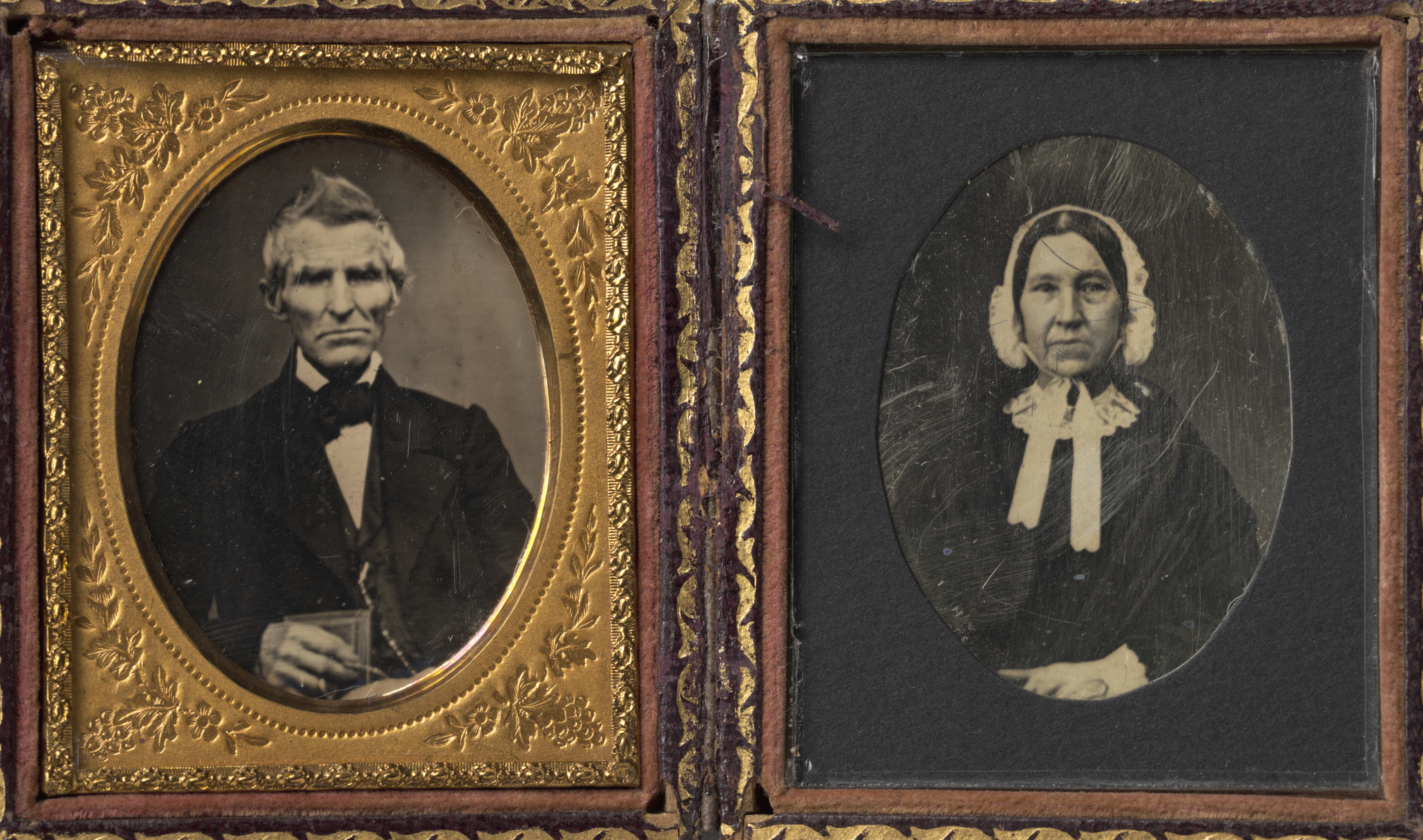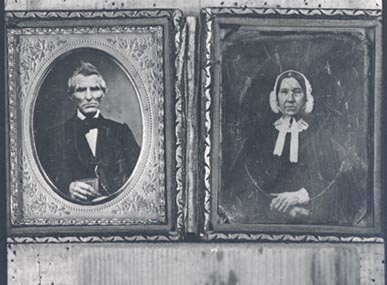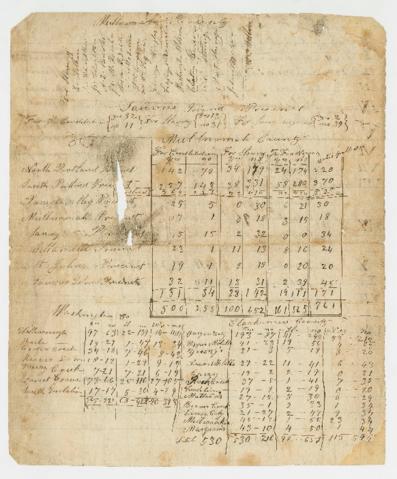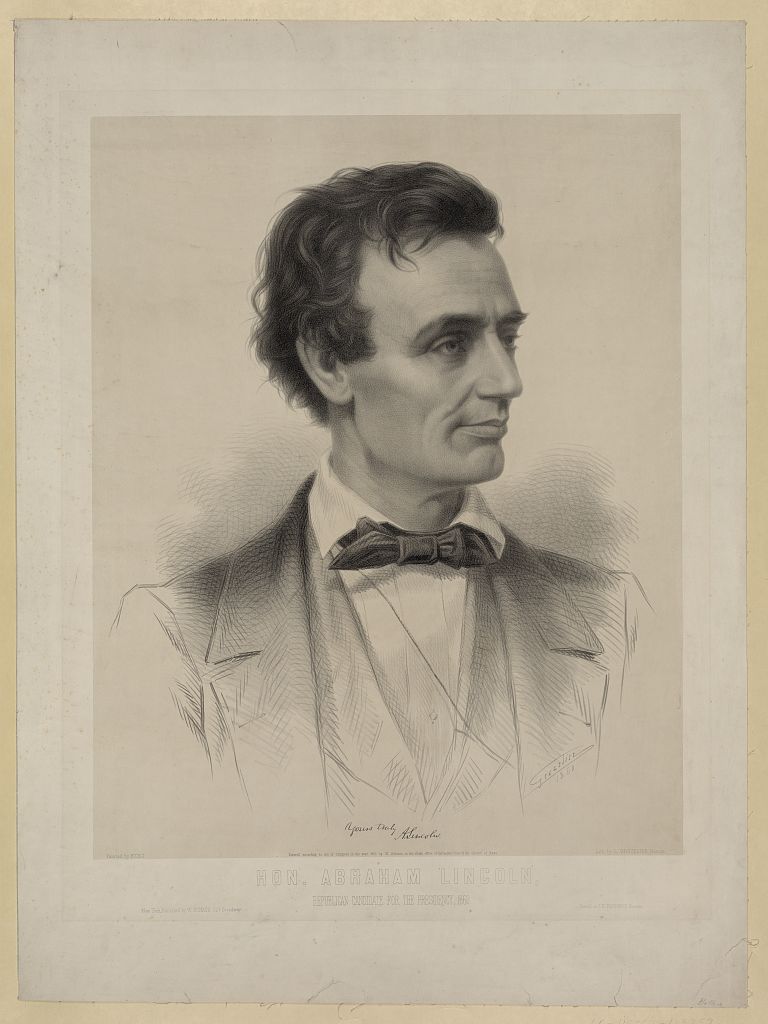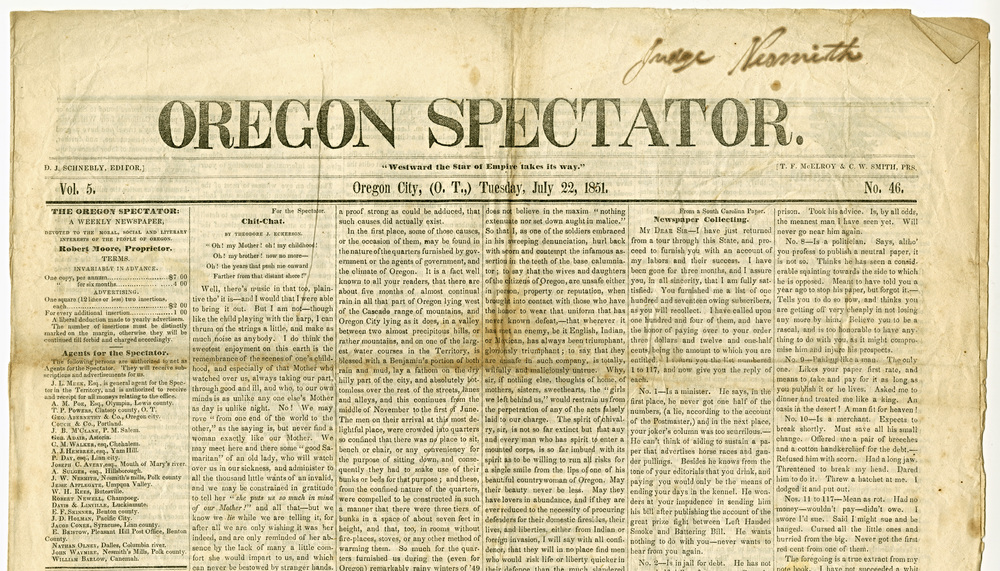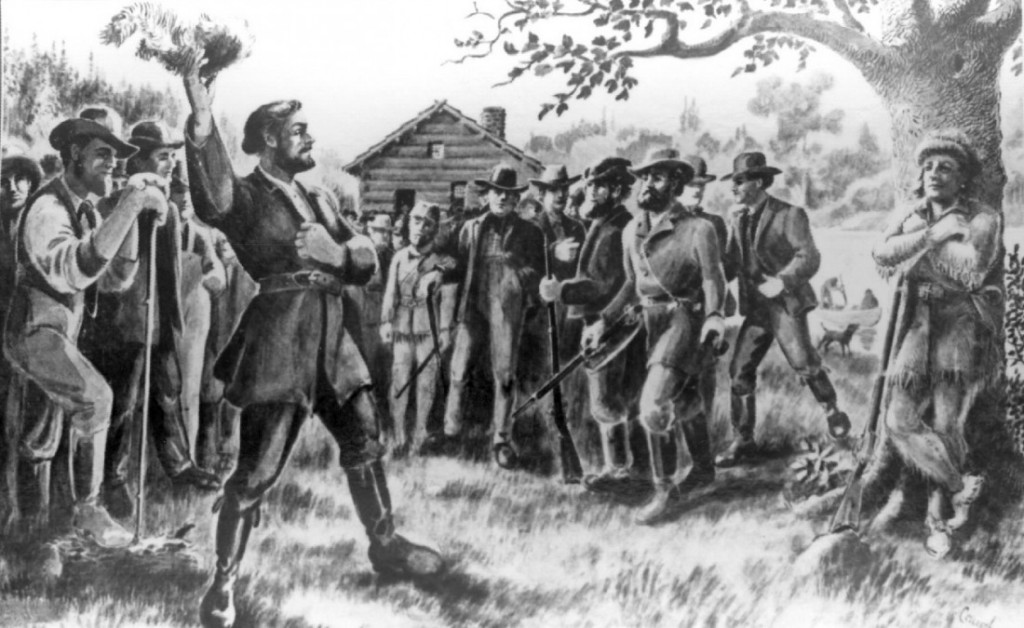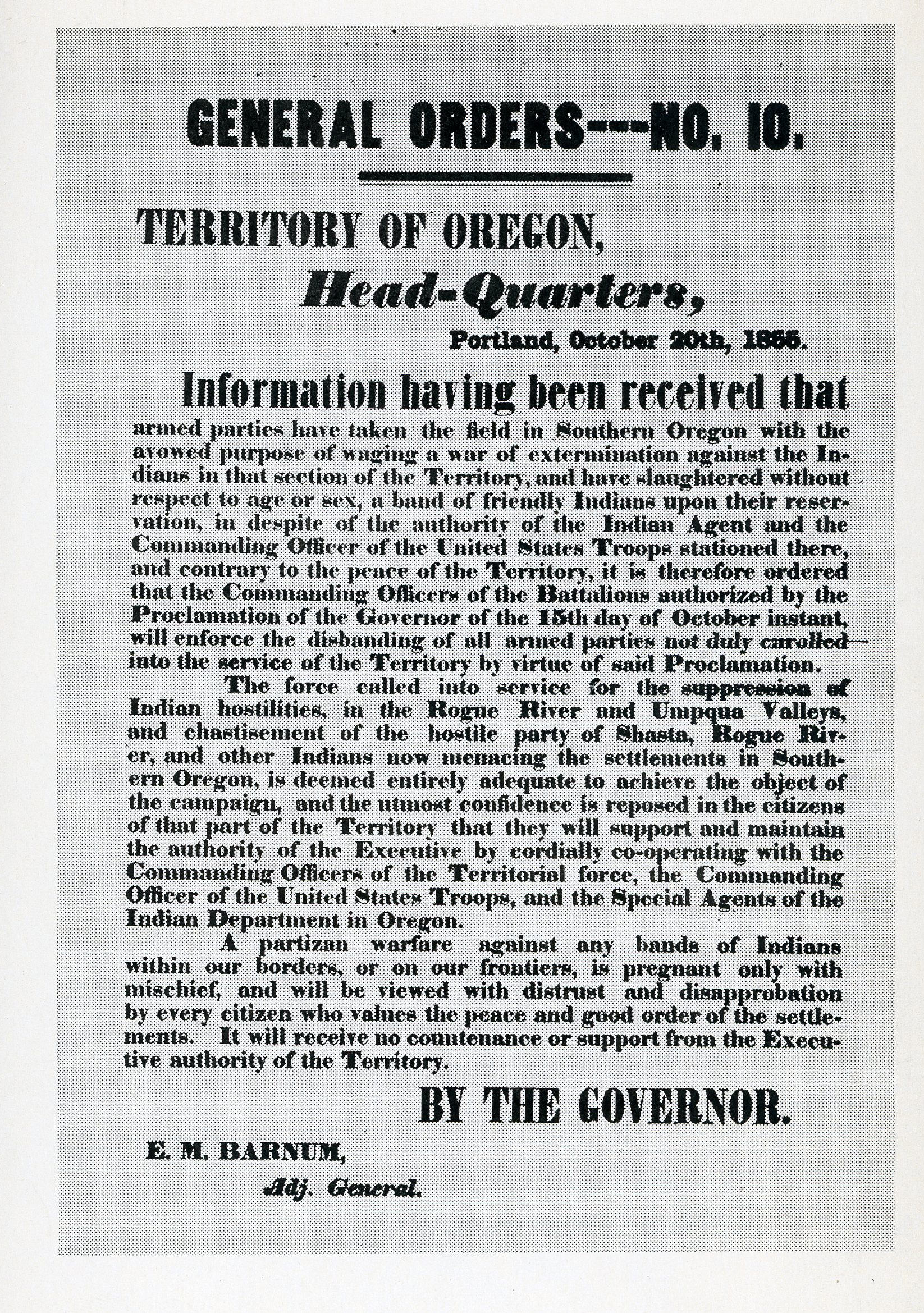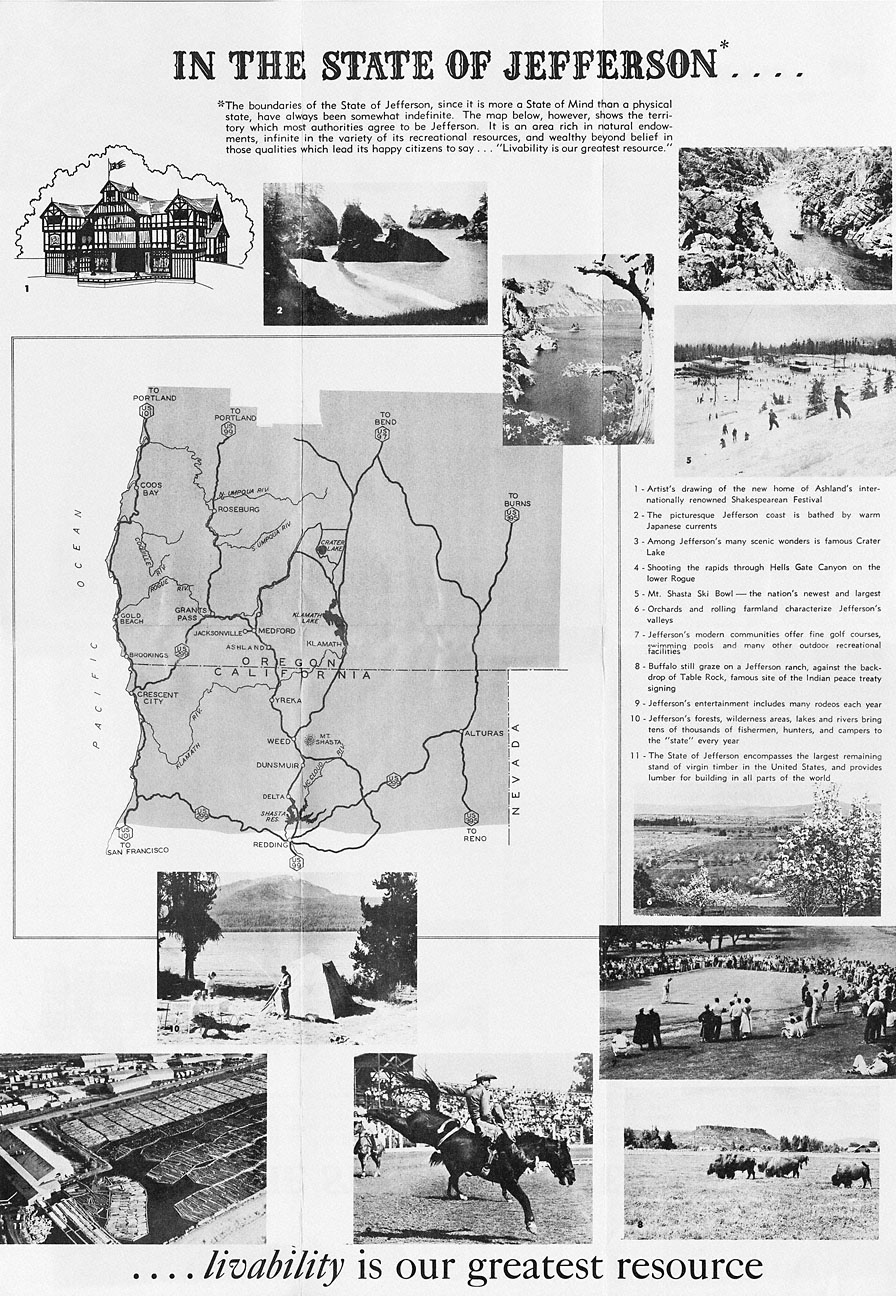William Green T’Vault had a wide-ranging career in early Oregon. A truculent and controversial political figure during the territorial and Civil War periods, T'Vault (pronounced "Tee-vault") was a slavery-and-secession advocate who became a prominent, strident voice for the minority of Oregonians who agreed with him.
T’Vault was born in 1809, but his birthplace is uncertain. Some accounts give it as Tennessee, but others report that he was born either during his immigrant parents’ voyage from France or soon after their arrival in Charleston, South Carolina. He grew up in Tennessee, where he studied law and married widow Rhoda Boone Burns (who claimed to be, but apparantly was not, a granddaughter of Daniel Boone). He moved to Arkansas Territory, where he was elected Pope County Court’s prosecuting attorney. In October 1837, T’Vault was accused of raping a 13-year old girl and of murdering an opponent (possibly the girl’s father) in a duel. He escaped from jail and stayed out of the public eye until 1843, when he was listed in an Arkansas newspaper as one of the trustees of a proposed private academy. He immigrated to Oregon in 1845.
The leader of a 300-person wagon party on the Overland Trail, T'Vault was named Oregon’s first postmaster-general soon after he reached Oregon City. In 1846, he won election to the provisional legislature and became Oregon’s first newspaper editor, overseeing publication of Oregon City’s Oregon Spectator until differences with the paper’s owners led to his departure.
T’Vault joined several partners in establishing an express mail service through the Rogue River Valley to link the town of Winchester with the mining camp of Yreka, California. He led some of the trips himself. In 1851, he rode with Major Phil Kearney’s army detachment heading south to California and took part in Kearney’s battle with the Takelma Indians near present-day Shady Cove.
Later that year, T’Vault led an ill-fated attempt to find a route up the rugged Rogue River canyon from the coast, intending to join the California-Oregon trail in the Rogue’s main valley. He assumed that the distance between the ocean and the valley could be little more than forty miles, but the group soon found their way blocked by sheer cliffs and steep slopes covered with dense brush. Turning north, they wandered through the upper Coquille River country until the terrain gentled and the river widened. A local Native offered to guide them to the coast by canoe, but within a few miles of the ocean the men were attacked by Coquille Indians and barely escaped with their lives.
The following year, T’Vault led another freight-route exploration from the Umpqua River overland toward Port Orford. He filed a land claim in what would become Jackson County at a narrow rocky place on the Rogue River (near present-day Gold Hill) he named “Dardanelles," after a community in Pope County, Arkansas.
T’Vault’s interest in southern Oregon increased in 1852 when gold strikes were made near Jacksonville. In 1853, he served with Joseph Lane and other volunteers during the brief 1853 Rogue River war.
In 1855, he established Jacksonville's Table Rock Sentinel (changing its name to Oregon Sentinel in 1858), using the newspaper—the first in southern Oregon—to renew his political career and to propose the creation of a Territory of Jackson in southern-most Oregon that would be open to slavery. Praising the U.S. Supreme Court's Dred Scott decision of 1857, he defended the rights of slaveholders to bring their human property to Oregon despite the territorial constitution's prohibition of chattel slavery.
Supported by a considerable number of states-rights Democrats in Jackson County, T'Vault won election to the territorial legislature in 1858; once in Salem, he was chosen as speaker of the house. By 1859, some of T'Vault's opinions echoed those of extremist southern fire-eaters in the East, and he was out of office by 1860. When the South's firing on Fort Sumter brought a temporary alliance between Oregon Republicans and pro-Union Democrats, pro-secessionist figures like T'Vault declined in popularity. He sold the newspaper to a colleague and left for the gold strikes in Idaho as the Civil War got underway.
Returning to Jackson County in 1862, T'Vault trumpeted the idea of an independent, slave-holding Pacific Republic comprised of California, Oregon, and nearby territories. Disgusted to find that Republicans now owned the Sentinel, he termed it the "Scent-in-Hell." In 1863, he founded the Oregon Intelligencer, in which he castigated his opponents as a "black republican, Union, negro-worshipping gang" that blindly followed "their dictator Lincoln."
By the end of the war, with his political star burned out, T'Vault was considered a local aberration, a colorful anachronism. An 1884 History of Southern Oregon recalled that he had "force of character…and a lack of culture…uncompromising in his animosities but fair to his friends." He died in Jacksonville in 1869 of smallpox during the closing days of the town's deadly 1868-1869 epidemic.
-
![W.G. T'Vault, c.1860]()
W.G. T'Vault, c.1860.
W.G. T'Vault, c.1860 Courtesy Oreg. Hist. Soc. Research Lib., neg no. 014969
-
![]()
Portraits of William T'Vault and Rhoda Burns T'Vault.
Cased photographs collection, Org. Lot 1414, Box 224, 0224S013, Oregon Historical Society Research Library, Portland, Oregon.
-
![William and Rhoda T'Vault]()
William and Rhoda T'Vault .
William and Rhoda T'Vault Courtesy Oreg. Hist. Soc. Research Lib., neg no. 015914
Related Entries
-
![Black Exclusion Laws in Oregon]()
Black Exclusion Laws in Oregon
Oregon's racial makeup has been shaped by three Black exclusion laws th…
-
![Election of 1860]()
Election of 1860
The presidential election of 1860 was a turning point in Oregon politic…
-
![Oregon Spectator]()
Oregon Spectator
Established in 1846, the Oregon Spectator was the first newspaper publi…
-
![Provisional Government]()
Provisional Government
The Provisional Government, created in May-July 1843, was the first gov…
-
![Rogue River War of 1855-1856]()
Rogue River War of 1855-1856
The final Rogue River War began early on the morning of October 8, 1855…
-
![State of Jefferson]()
State of Jefferson
In all of American history, only two states have been formed from older…
Related Historical Records
Map This on the Oregon History WayFinder
The Oregon History Wayfinder is an interactive map that identifies significant places, people, and events in Oregon history.
Further Reading
Beckham, Stephen Dow. Requiem for a People: The Rogue Indians and the Frontiersmen. Norman: University of Oklahoma Press, 1971.
Haines, Frank, Jr. Jacksonville: Biography of a Gold Camp. 1967. Gandee Printing, Medford.
LaLande, Jeff. "'Dixie of the Northwest': Southern Oregon's Civil War." Oregon Historical Quarterly. 100.2 (Spring 1999).
Walling, A.G. History of Southern Oregon. Portland, Ore.: A. G. Walling Publishing, 1884.



